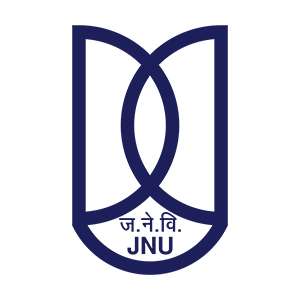Master's Programme at Jawaharlal Nehru University
The Centre for Economic Studies and Planning at Jawaharlal Nehru University (JNU) is renowned for its excellence in teaching and research in the field of Economics. It has earned recognition from the University Grants Commission (UGC) as a Centre for Advanced Studies, highlighting its stature in the academic community.
The flagship program offered by the Centre is a two-year Master of Arts (M.A.) in Economics. This program is designed to provide students with a comprehensive understanding of economic theories, policies, and analytical techniques. Here are some key details about the M.A. in Economics program at the Centre for Economic Studies and Planning:
Program Structure: The M.A. program consists of four semesters, spanning two years. During this time, students engage in a structured curriculum comprising a total of 16 courses.
Compulsory Courses: In the first year of the program, students are required to complete eight compulsory courses. These courses are designed to establish a strong foundation in economic principles and theories.
Optional Courses: The remaining eight courses are optional, allowing students to tailor their academic journey based on their interests and career aspirations. These optional courses are typically offered by the Centre, providing students with a range of topics to choose from.
Flexibility: The program also offers flexibility for students who wish to explore interdisciplinary perspectives. They can choose up to two courses from outside the Centre if they desire to broaden their academic horizons.
Admission Procedure for MA Economics through CUET PG 2024
CUET PG 2024 is a Computer Based Test (CBT).
A) Merely appearing in CUET (PG) – 2023 does not guarantee admission to your desired university for MA Economics.
B) The selection and admission process is contingent upon meeting admission criteria, eligibility requirements, securing a rank in the merit list, demonstrating medical fitness, verifying original documents, and satisfying additional criteria specified by the university you are applying to.
C) Admissions are managed by Central and Participating Universities for their respective MA Economics programs. Once NTA declares the CUET (PG) – 2023 results, the universities will release their counseling/admission schedules and merit lists based on CUET (PG) – 2023 scores and additional university-specific criteria.
D) The University can draw the merit list based on the total score or only on the score achieved in Part II, the Domain Knowledge Section. For detailed information regarding the admission process and any inquiries related to admissions, candidates are strongly encouraged to visit the official website of the university they have applied to.
JNU MA Economics & CUET PG Past Year Papers
Eligibility Criteria for JNU MA Economics
Candidates must hold a Bachelor’s degree in any discipline following the 10+2+3 education pattern with a minimum of 50% marks. It is expected that candidates have knowledge of Mathematics at the 10+2 level, and this will be assessed in the Entrance Examination. Additionally, OBC category (non-creamy layer) candidates are eligible for a 10% relaxation in the percentage of marks required in the qualifying examination compared to open category candidates. SC/ST and Persons with Disabilities (PWD) candidates, irrespective of their percentage of marks in the qualifying examination, are eligible to appear for the Entrance Examination.
No. of Seats for JNU MA Economics
JNU has two schools under it :
i) School of International Studies offering M.A. in Economics (with Specialization in World Economy) with 39 seats
ii) School of Social Sciences with M.A. in Economics, Geography, History, Political Science, Sociology, Philosophy and Development & Labour Studies offering a total of 434 seats
Fees for JNU MA Economics
With effect from the session 2023-24, an annual fee of Rs. 371 is payable by the students of M.A. Economics students
Economics (COQP10) Syllabus for CUET PG 2024
Microeconomics
Consumer Theory:
Demand, Utility, Indifference Curve, Revealed Preference Theory, Consumer Surplus. Production Theory: Production Function, Law of Variable Proportions, Returns to Scale, Cost Function.
Price and Output Determination in Markets:
Perfect and Imperfect Competition, Monopoly, Price Discrimination, Monopolistic, Duopoly, and Oligopoly models, General Equilibrium, Efficiency, and Welfare.
Macroeconomics:
National Income Accounting. Income and Output Determination: Aggregate Demand and Aggregate Supply, Effective Demand Principle, Classical and Keynesian Theory.
Money and Inflation:
Demand and Supply of Money, Money Multiplier, Credit Creation, Role of Reserve Bank of India, Quantitative Theories of Money, Philip’s Curve, Monetary and Fiscal Policy of India.
Consumption and Investment Function:
Permanent, Relative, and Life Cycle Hypothesis, Multiplier and Accelerator.
Open Economy Models:
Mundell and Fleming Model, Balance of Payments, Exchange Rate Determination, Purchasing Power Parity.
Economic Growth:
Harrod-Domar Model, Solow Model.
Statistical Methods in Economics:
Mean, Mode, Median, Dispersion, Skewness, Quartile Deviation, Average Deviation, Standard Deviation. Correlation.
Mathematical Methods in Economics:
Sets and Vectors. Functions of one and several real variables, Single and Multi-variable optimization, Integration of functions.
Difference equations, Determinants, Matrix. Linear Programming, Probability, Differential Equations.
Indian Economy:
Overview of Colonial Economy: Macro Trends, Agriculture, Railways, and Industry, Economy and State in the Imperial Context.
New Economic Policy.
Public Economics: Public and Private Goods, Externalities, Budget, Deficits, Public Debt, Fiscal Federalism in India, Taxation.
International Trade Theories: Adam Smith, Ricardo, Heckscher-Ohlin model, and New Trade Theories.
A more detailed syllabus has been included in our Blogs.
CUET PG Entrance Exam Paper Pattern and Marking Scheme
1.This paper contains One Section. It contains Domain Specific area comprising of 75 MCQs
2.Total No of Questions- 75
3.Marking Scheme:
4 marks will be awarded for each correct response.
1 mark will be deducted for each incorrect response.
Total Time Allotted : 105 Minutes
JNU MA Economics Placements
Jawaharlal Nehru University (JNU) has been known for its academic excellence and research-oriented programs. In recent years, the university has also made strides in campus placements, with students securing impressive job offers from both on-campus and off-campus drives.
Here are some highlights of the placement statistics at JNU: Highest Package through Off-Campus Placement: JNU’s highest placement package stood at INR 33 Lakh Per Annum (LPA), and it was offered by CISCO through an off-campus placement drive. This reflects the university’s ability to attract top-tier companies for its students. Highest Package through On-Campus Drive: Through on-campus placements, JNU secured its highest package at INR 16 LPA. This demonstrates the strong ties the university has established with recruiters who visit the campus for placements.
Average Package: The average placement package at JNU is INR 11 LPA. This is a competitive figure and showcases the university’s commitment to preparing students for successful careers. Top Recruiters: JNU has attracted several leading companies for campus placements. Some of the prominent recruiters include Cradlepoint, Optum, Salesforce, HSBC, Ciena, Strand Life Science, S&P Global, among others. These organizations represent a diverse range of sectors, offering students opportunities in various fields.
It’s important to note that while placements at JNU have been on an upward trajectory, the primary focus of the university remains on academic excellence and research. Students at JNU are encouraged to pursue higher studies, engage in research projects, and contribute to scholarly endeavors. The placement figures reflect the increasing recognition of JNU graduates in the job market, and the university continues to foster a conducive environment for both academic and career growth.



